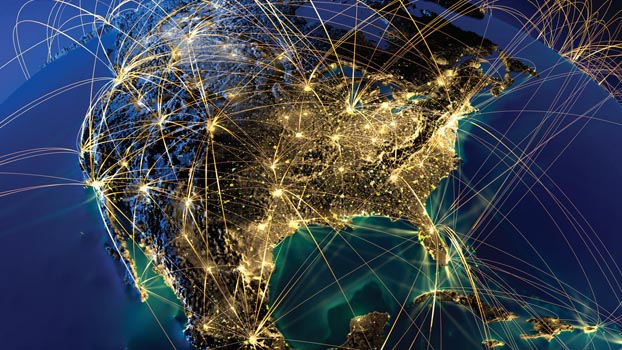ISPs face huge crisis
Sharp rise in broadband use, big decline in bill collection

The owners of the internet service provider companies are considering seeking government help as they are unable to cope with increasing pressure for unusually high demands for uninterrupted broadband internet services. On top of the issue of rising pressure on internet services, they said that they are facing difficulties in realizinginternet service fees from clients mostly manually collected from household clients. They said that such complicationsensued after the lock down was enforced to contain spread of coronavirus in the country.
After the start of the government-announced 10-days general holiday from March 26, demand bandwidth for internet communications rose by an additional 200 GBPS (gigabytes per second), sources in the Internet Service Providers Association of Bangladesh (ISPAB) confirmed. Md Emdadul Hoque, Secretary-General of ISPAB, told Bangladesh Post that broadband internet use tremendously increased since March 24. Before, the usual average broadband internet use was around 1400 GBPS, but now the internet use has increased to around 1700 GBPS.
Emdadul expressed uncertaintywhether they can sustain providing uninterrupted internet services in such a situation unless the government intervenes. “We do not know how long we can offer continuous internet services to our clients in the extended lockdown period. Many of our partner internet service providers said that they are often facing difficulties in realizing subscription charges from clients.”
The ISPAB statistics show that of the total clients, 30 percent are corporate users while the rest are household users. However, majorities of the subscription money come from the corporate clients who are also not able to pay due to the barriers mentioned above. In this regard, he informed that until now they are able to collect just about 20 percent subscription fees which is very low against their expected amount.
Besides, unless they collect the money the individual companies are also not able to pay salaries, cover expenses and most importantly, pay the fees to International Internet Gateway (IIG) and Nationwide Telecommunication Transmission Network (NTTN), two of the main gateways through which the ISP buy and offer broadband internet to their clients.
He continued, “If IIG or NTTN stop providing bandwidth, we will not be able to provide internet services anymore. In this situation, government help is very much essential”. Since the coronavirus outbreak in the country, all commercial activities, including by corporate houses, banks, call centers, health service centres, schools, and others are now mostly dependent on the internet communications to continue business as usual.
Certain private and public companies are now obliged to work from home to complete their respective projects that need urgent attention. Also, schools, colleges, and universities have been asked to introduce online classes to complete respective syllabus for the academic year. As per the latest Ookla's Speedtest Global Index report, internet use both in mobile and broadband has increased significantly.
The mean download speeds on fixed broadband is 25.78 Mbps (megabytes per second) in March which was slightly higher at 25.98 Mbps in February. While mobile download speed was 7.34 Mbps in February which stood at 7.02 Mbps in March. However, both indicators sharply increased in April. People have been using the internet as a means of communication and socialization during the lockdown. According to ISPAB, people are widely using Facebook, while YouTube is holding the second position. Besides, different apps, which provide video call services like IMO, Viber, WhatsApp, Messengers, and others are also being used widely.




